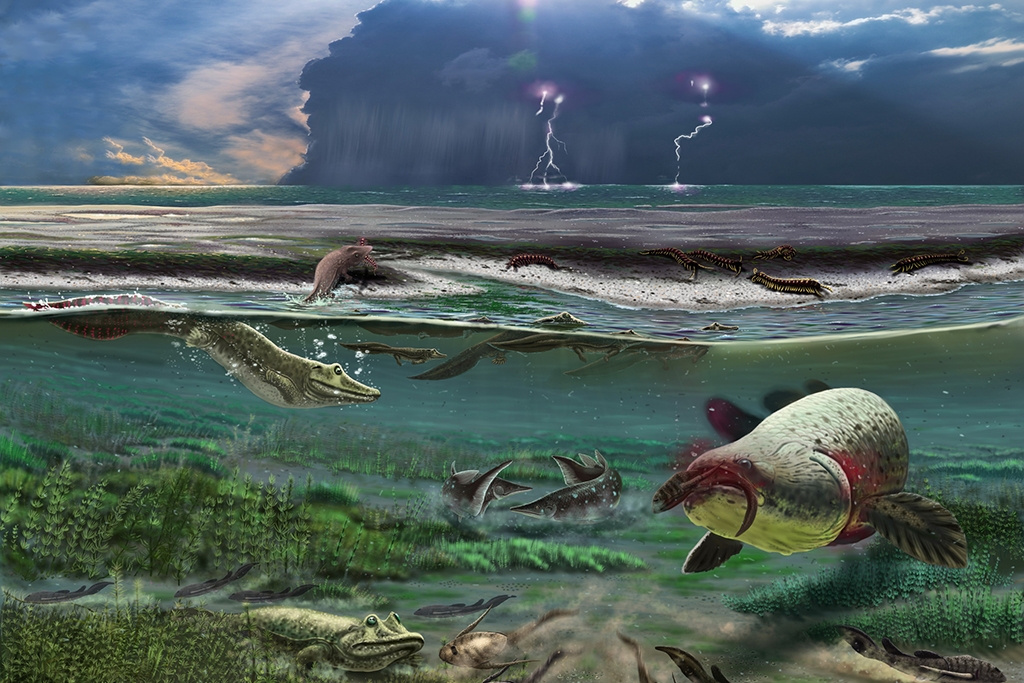Earliest known tetrapod probably never left the water
An international team, led by Per Ahlberg (SciLifeLab/UU), has found evidence suggesting that the earliest tetrapods – the group of animals that made the evolutionary transition from water to land – might never have left the water.
The first tetrapods evolved from fish and lived between 360-390 million years ago during the Devonian period. So far, what we know about Devonian tetrapods, is based on a few nearly complete skeletons of the tetrapods Ichthyostega and Acanthostega who lived at the end of the Devonian period. Older Devonian tetrapods are unfortunately only known from a few scraps of jaws or limb bones.
Recently all this changed when researchers discovered the bones of a perfectly preserved tetrapod on the banks of the Izhma River near the city of Ukhta in the Komi Republic of European Russia. The new tetrapod, called Parmastega aelidae, was only marginally younger than the oldest fragmentary tetrapod bones and is believed to have roamed the earth around 372 million years ago.
The study, published in Nature, reveals astonishing facts about one of the earliest tetrapods. Parmastega somewhat resembles a crocodile but with its eyes raised above the top of its head indicating that it might have been hunting for prey close to the water’s edge. Lateral line canals – sensory organs for detecting vibrations in the water and inherited from fish ancestors – were limited to the lower jaw indicating the Parmastega spent a lot of time close to the surface.
The big surprise, however, was that the shoulder girdle, and probably the vertebral column and limbs, was partly made from cartilage – not suitable for a life on land – which strongly suggests that Parmastega never really left the water.
Read the press release here.
Painting: Mikhail Shekhanov





